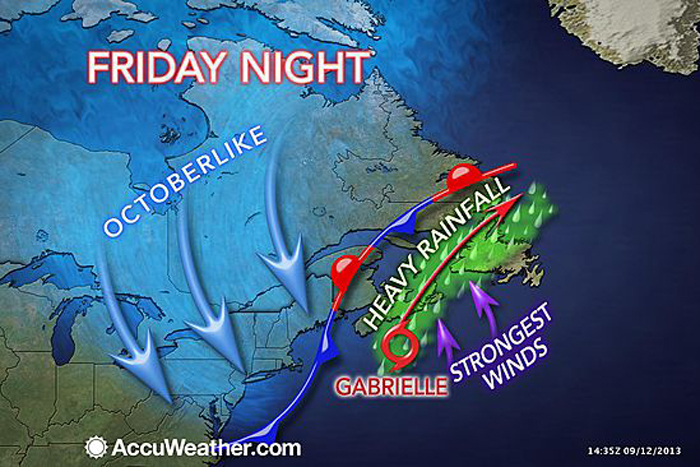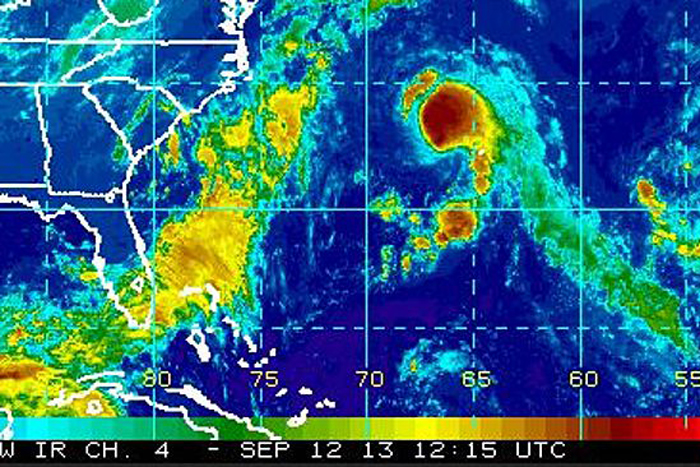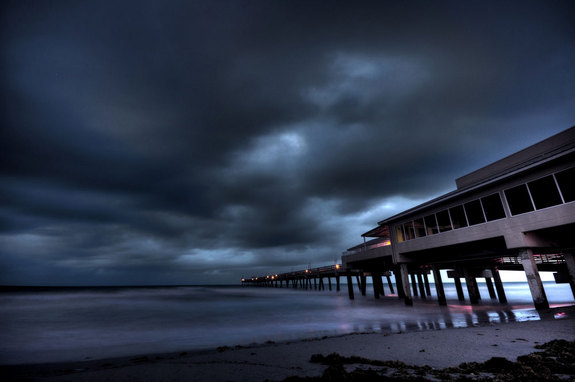Gabrielle Regains Strength, Takes Aim at Canada

This article was provided by AccuWeather.com.
Gabrielle will affect part of Atlantic Canada with drenching rain and gusty wind before the week comes to a close.
The system was downgraded to a tropical depression late Wednesday evening, EDT, after bringing a couple of days of windswept rain, rough surf and seas to Bermuda Tuesday and Wednesday. However, Gabrielle has become a tropical storm for the third in its life Thursday midday.
Gabrielle is expected to track northward over the next several days.
A cool front pushing across the Eastern U.S. will keep the tropical system far enough east to have no impacts on the United States. The storm will directly impact part of Atlantic Canada.

The main threat from Gabrielle will be heavy rain.
According to AccuWeather.com Canada Weather Specialist Brett Anderson, "The heaviest rainfall, likely 25-50 mm, will run along and just west of the track up through eastern Nova Scotia, Prince Edward Island and western Newfoundland."
Sign up for the Live Science daily newsletter now
Get the world’s most fascinating discoveries delivered straight to your inbox.
RELATED: Canada Weather Center AccuWeather.com Hurricane Center Canada Weather Blog
In addition to the heavy rainfall, Gabrielle will also bring winds of tropical storm force to the region that could bring down trees and lead to power outages.
"At this point, it looks like tropical storm-force winds could impact Cape Breton then the south coast of Newfoundland late Friday and Friday night." Anderson said early Wednesday.
By Saturday, interactions with land and the sweeping energy of the cold front will likely cause Gabrielle to lose tropical characteristics. However, the system may still bring some more rainfall to part of Labrador before it travels over the cold waters of the northern Atlantic Ocean.
© AccuWeather.com. All rights reserved. More from AccuWeather.com.
With much of the country experiencing an unseasonably warm winter, fears of climate change come to mind. See how well you understand recent weather, climate and the difference between them.
Pop Quiz: Sign of Climate Change, or Just Weird Weather?










